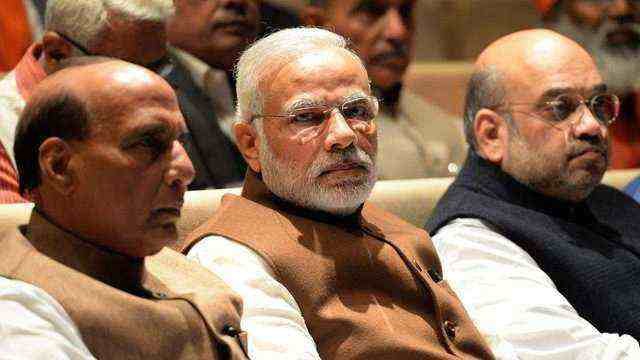
Stung by the defeats in three core states in the Hindi heartland and facing anger over an ongoing agricultural distress, the BJP believes it has an ace up its sleeves - the likely announcement of Universal Basic Income in its last budget session, sources have told News18.
The loss of Rajasthan, Chhattisgarh and Madhya Pradesh to the Congress is inevitably going to loom large over the forthcoming interim budget, scheduled to be presented by finance minister Arun Jaitley on February 1.
Officials said that a pro-poor budget that appeals to the rural poor and deals with the agrarian crisis is likely. “The government is seriously considering the announcement of the Universal Basic Income to help pull people out of poverty," said one official.
In its manifesto in Rajasthan, the BJP had pledged a universal basic income that will be arrived at “after taking into consideration (the beneficiary’s) income from various sources and the government benefits (she receives)”.
The idea, which has been in discussion in the west for years and has been tried in Canada and Switzerland as part of a pilot project, was floated by the former chief economic adviser Arvind Subramanian.
In an interview last week, Subramanian had said that he had discussed the idea with the Jammu and Kashmir government where it was still "embryonic" and Bihar chief minister Nitish Kumar who was "very encouraging and excited about it".
He added that "there are ways of taking it forward and I think that the Centre can give states the freedom to spend the money on things that they want to… maybe some states will take up UBI."
A senior BJP leader explained why many in the past felt that the UBI could potentially be a political game changer.
"It would be wrong to say that we have lost our core voters in these three states. But, of course it is a time to reflect. The UBI can be key. The idea is very powerful. Basically, everyone - no matter how poor - is guaranteed some income each month."
But there are those who feel that the country might not be ready for it. For instance, a common argument against UBI is that it would disincentivise work.
Subramanian, while arguing for careful implementation, said, "I am not clear if there is evidence for that argument. There is a little bit of paternalism in that argument. I mean if you're really poor which is what this addresses, are we sure that getting people from having very little to up to the poverty line is going to make them stop working?"


.jpeg)

